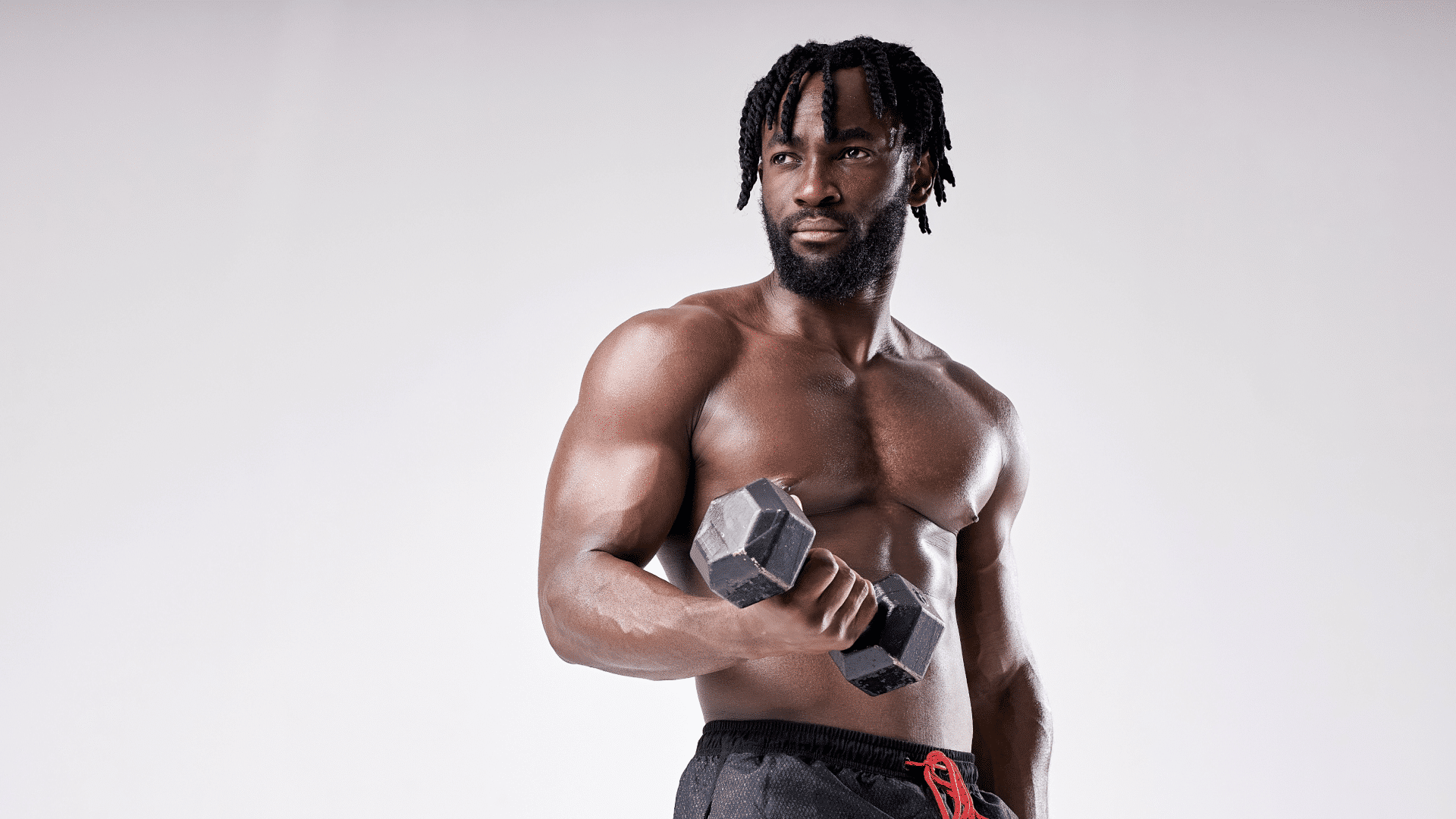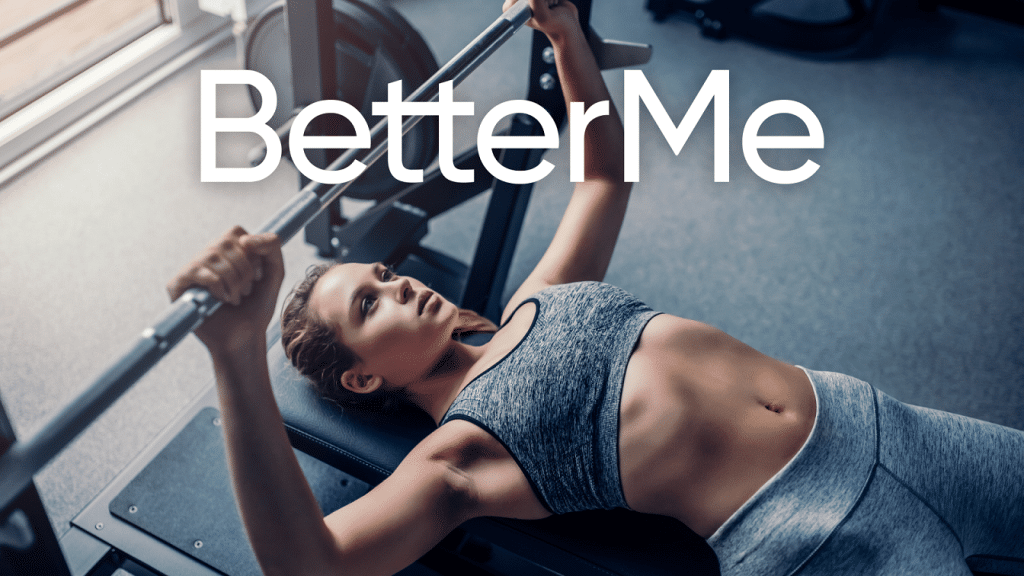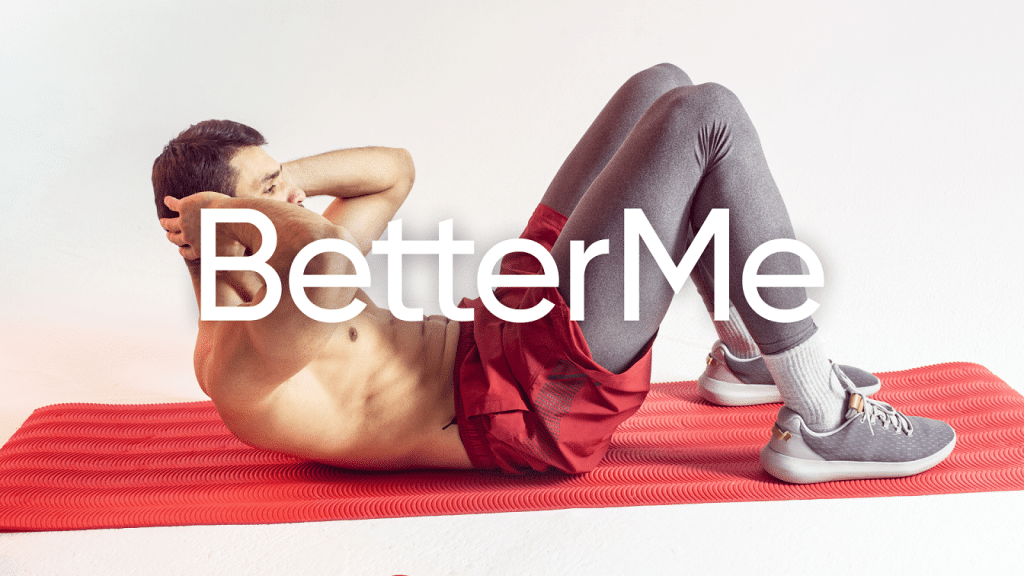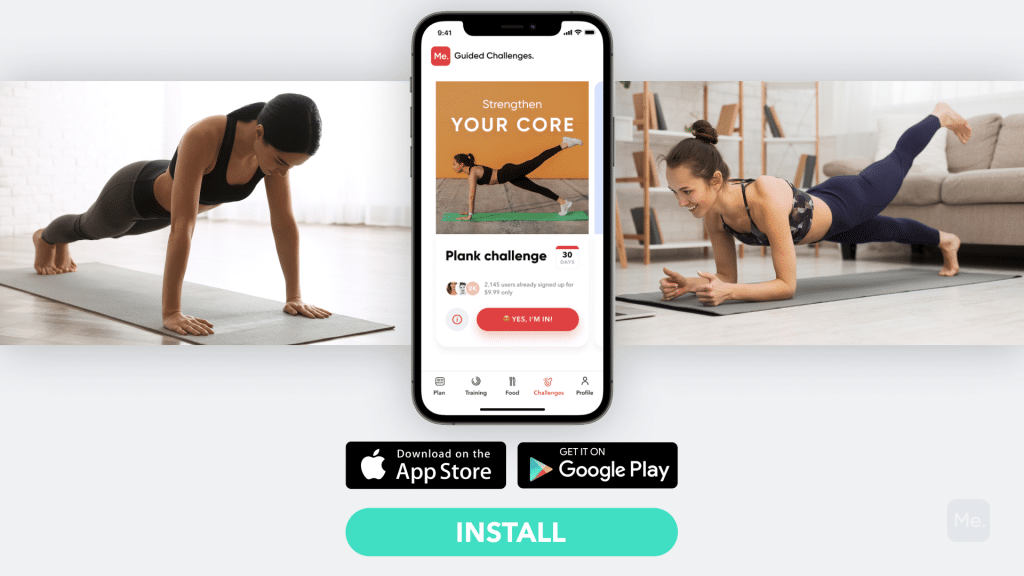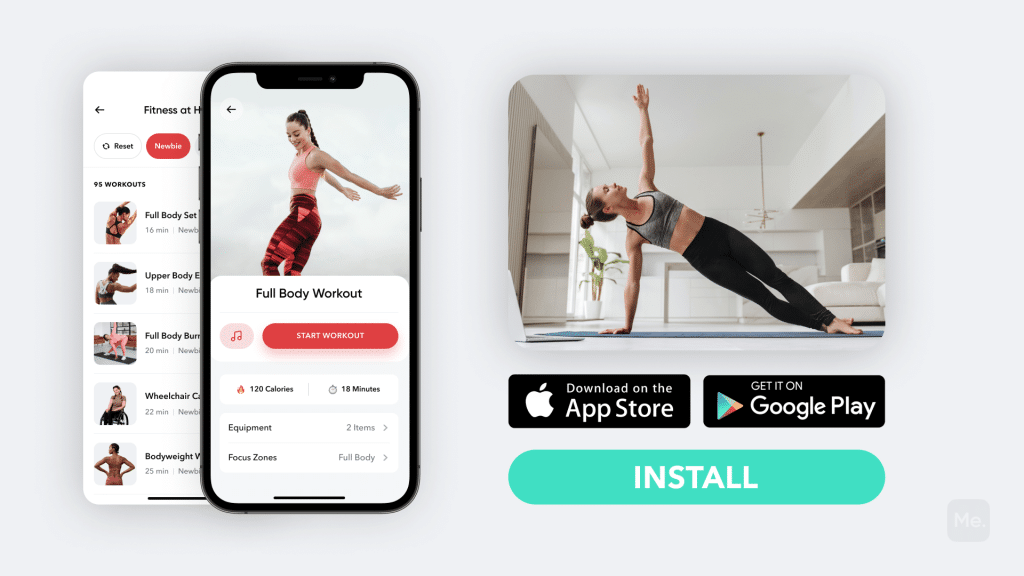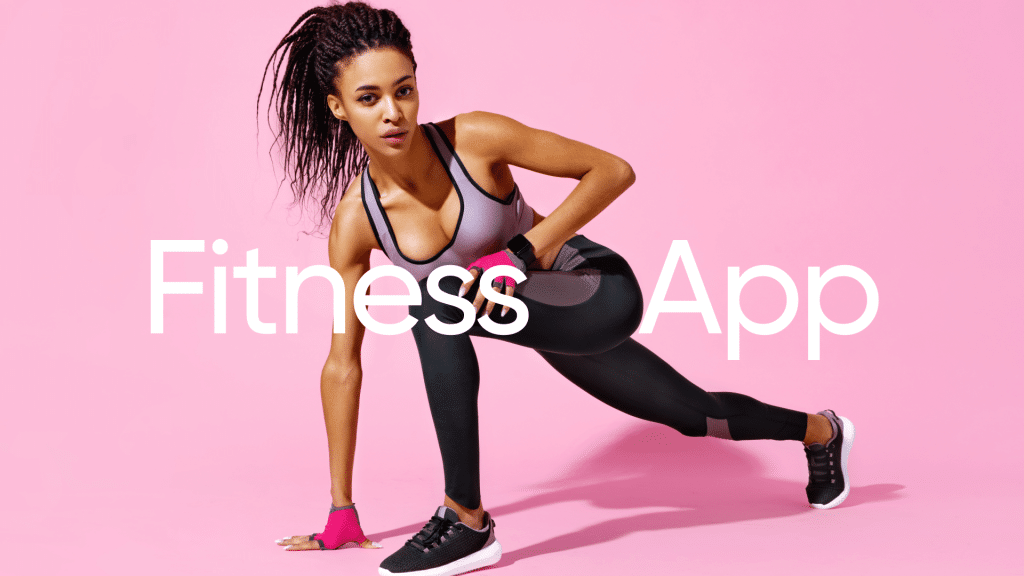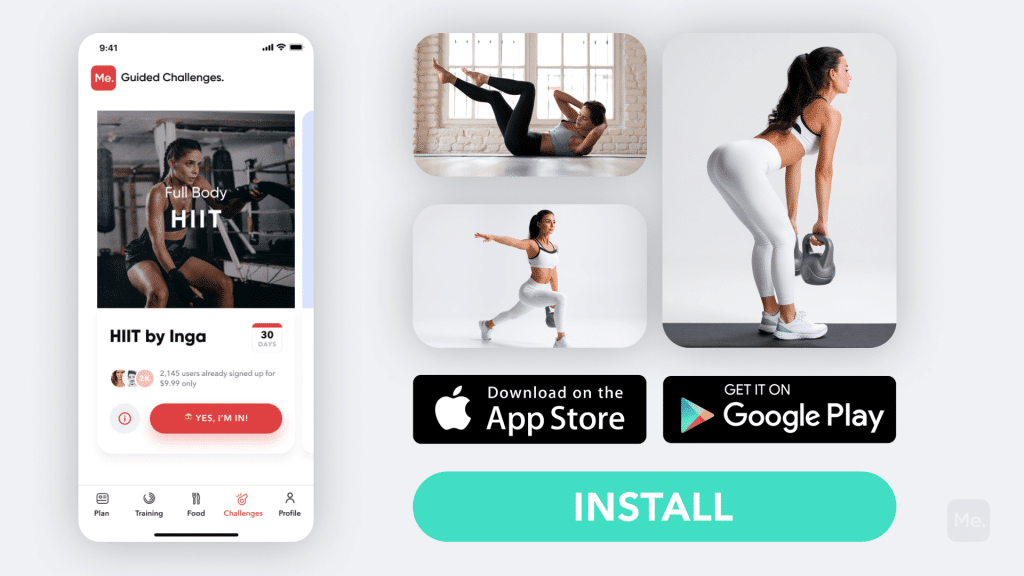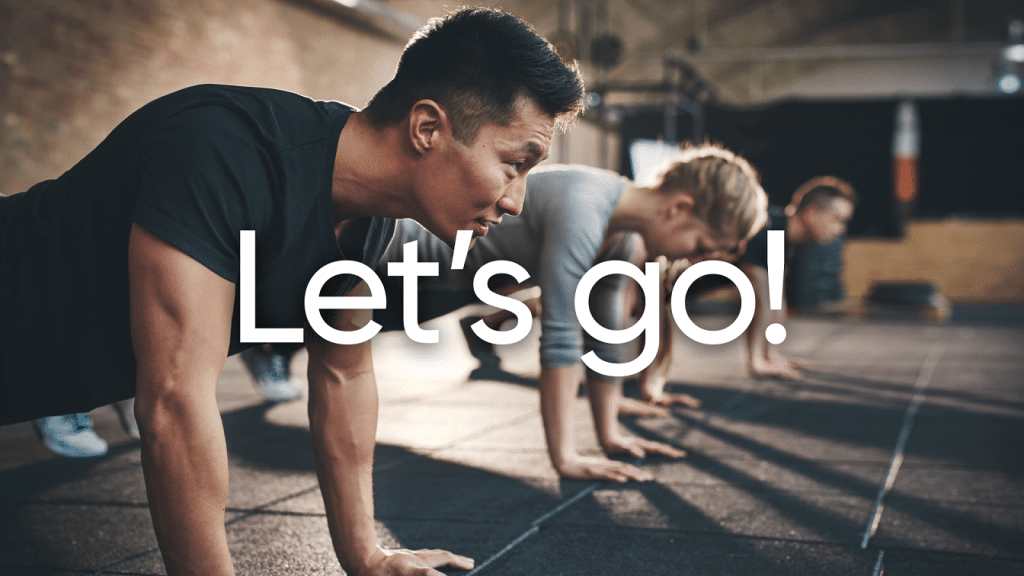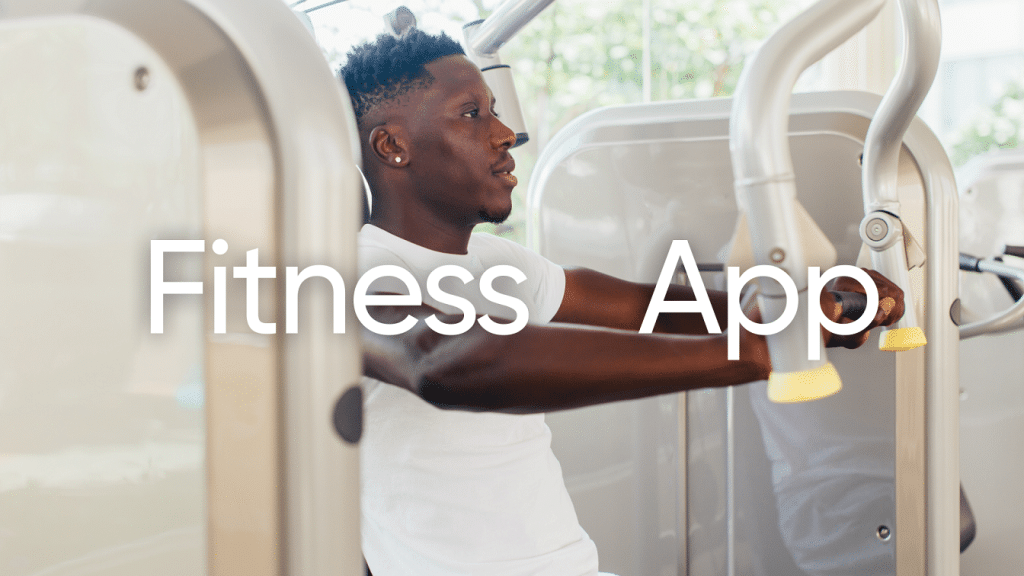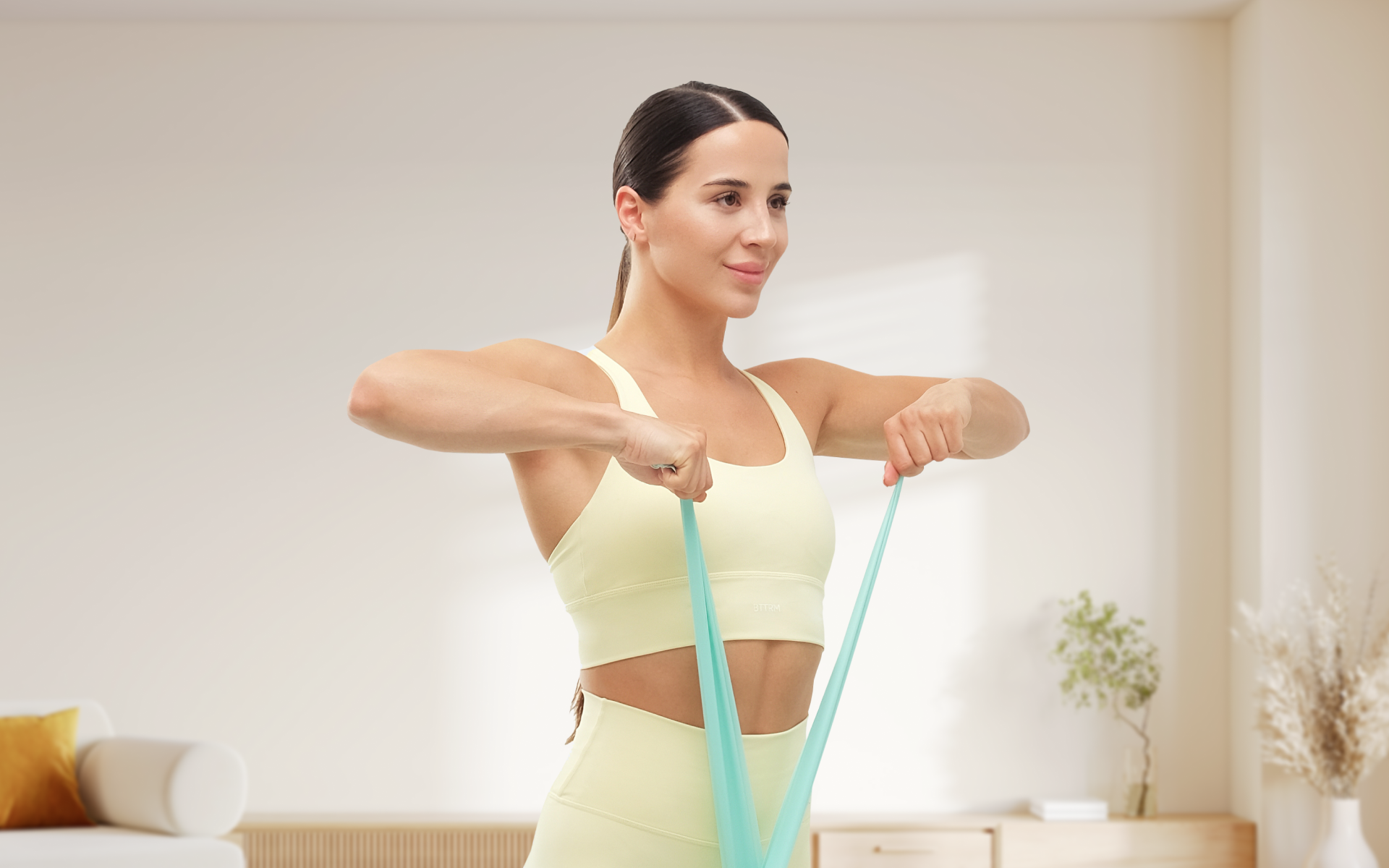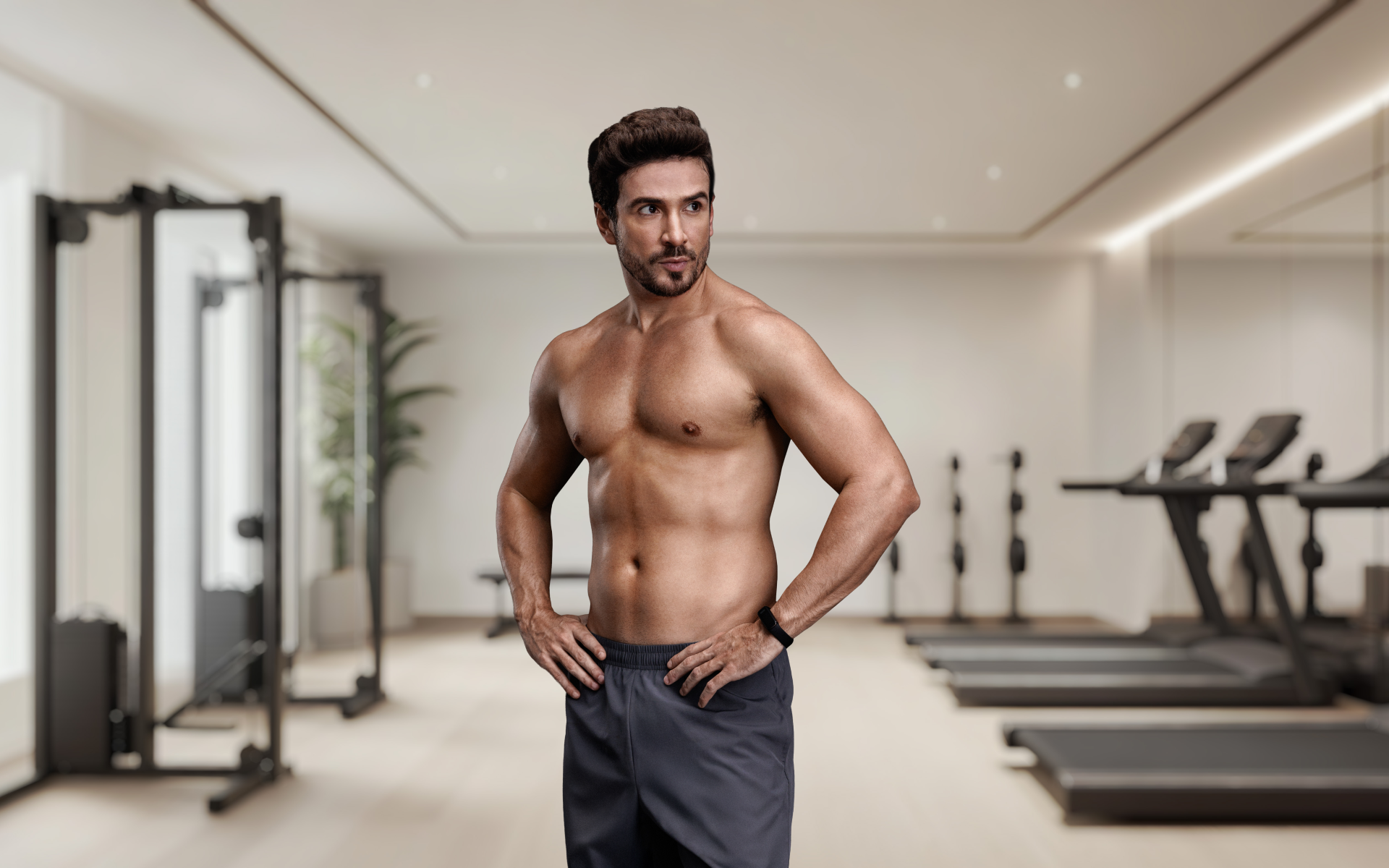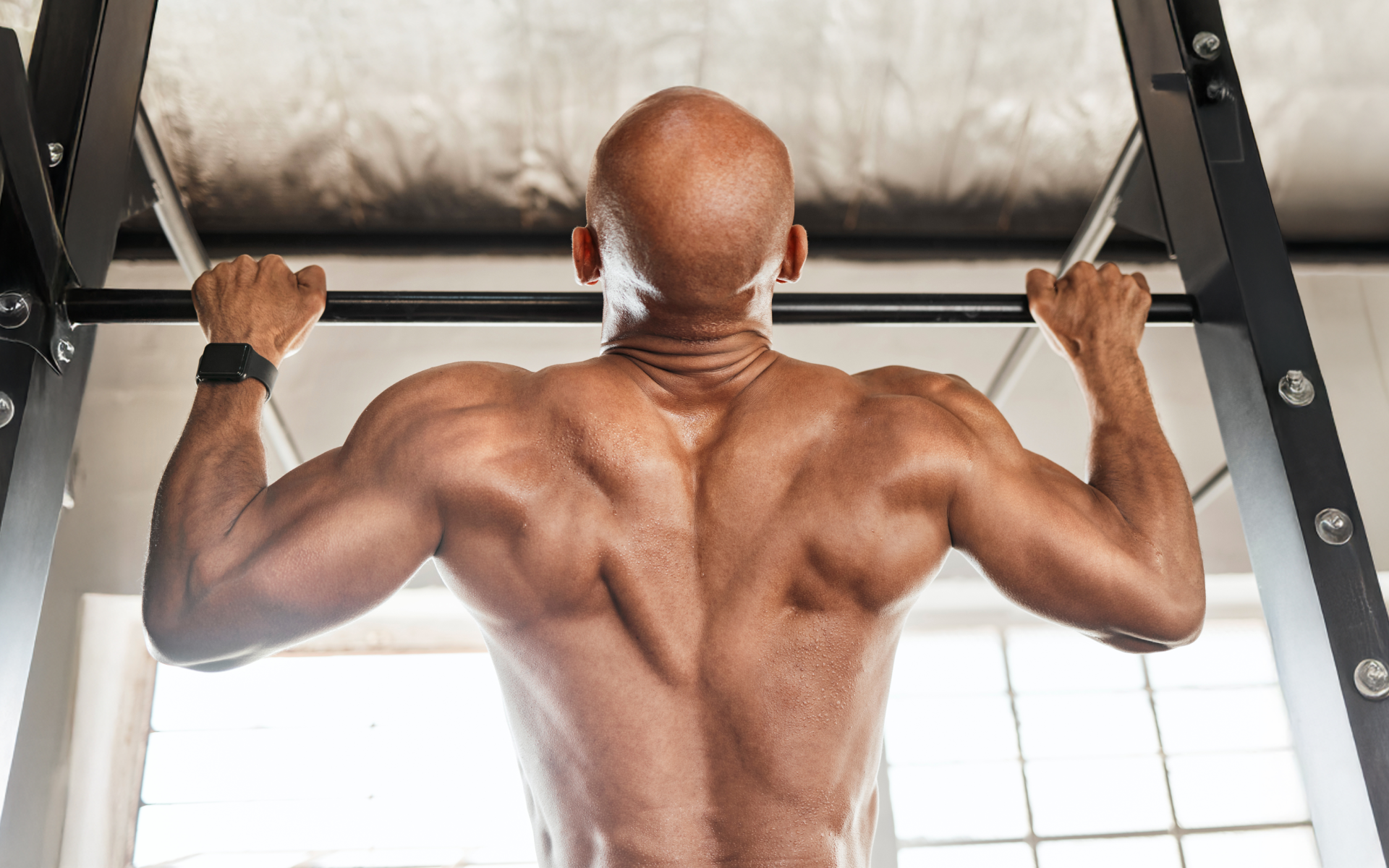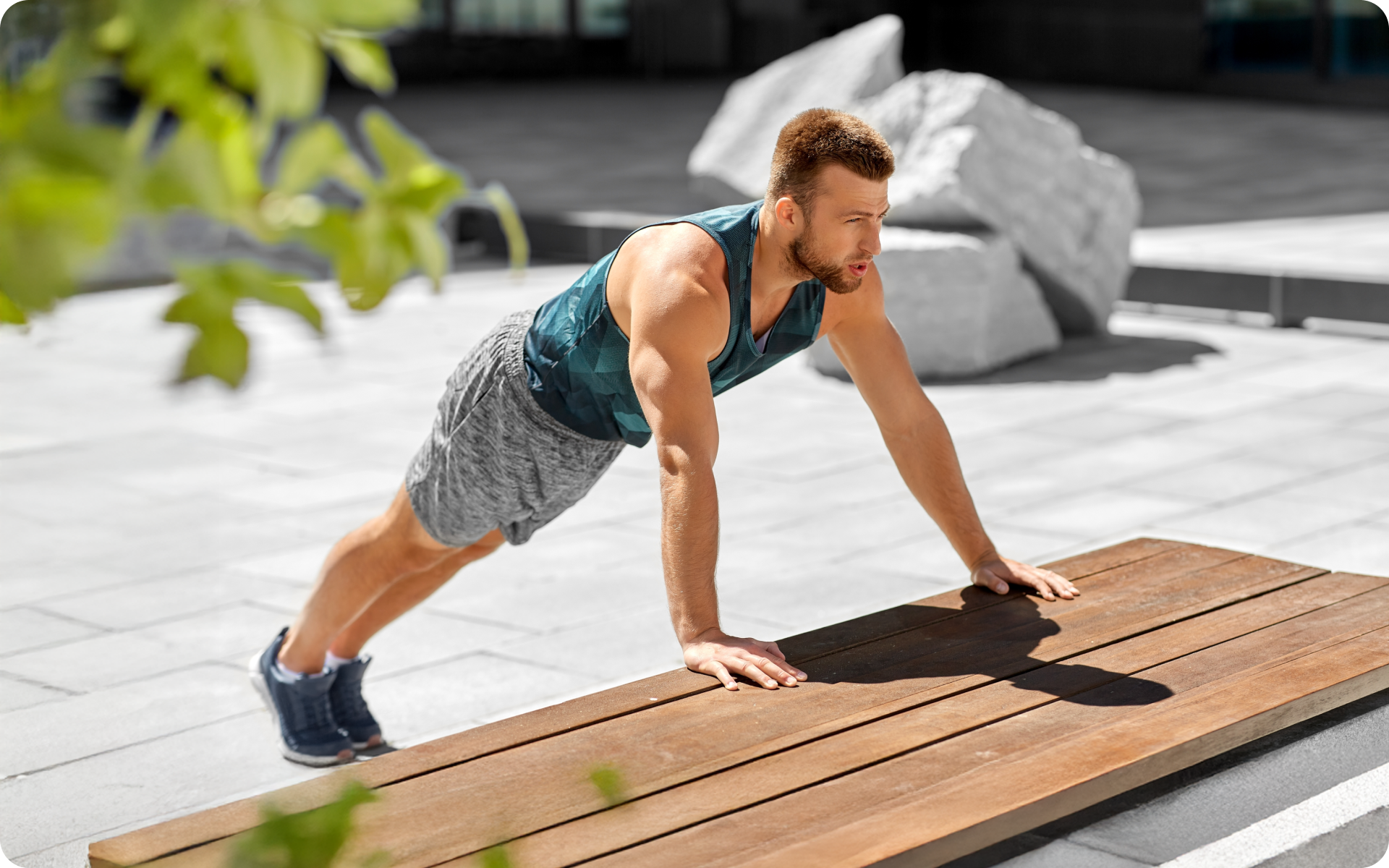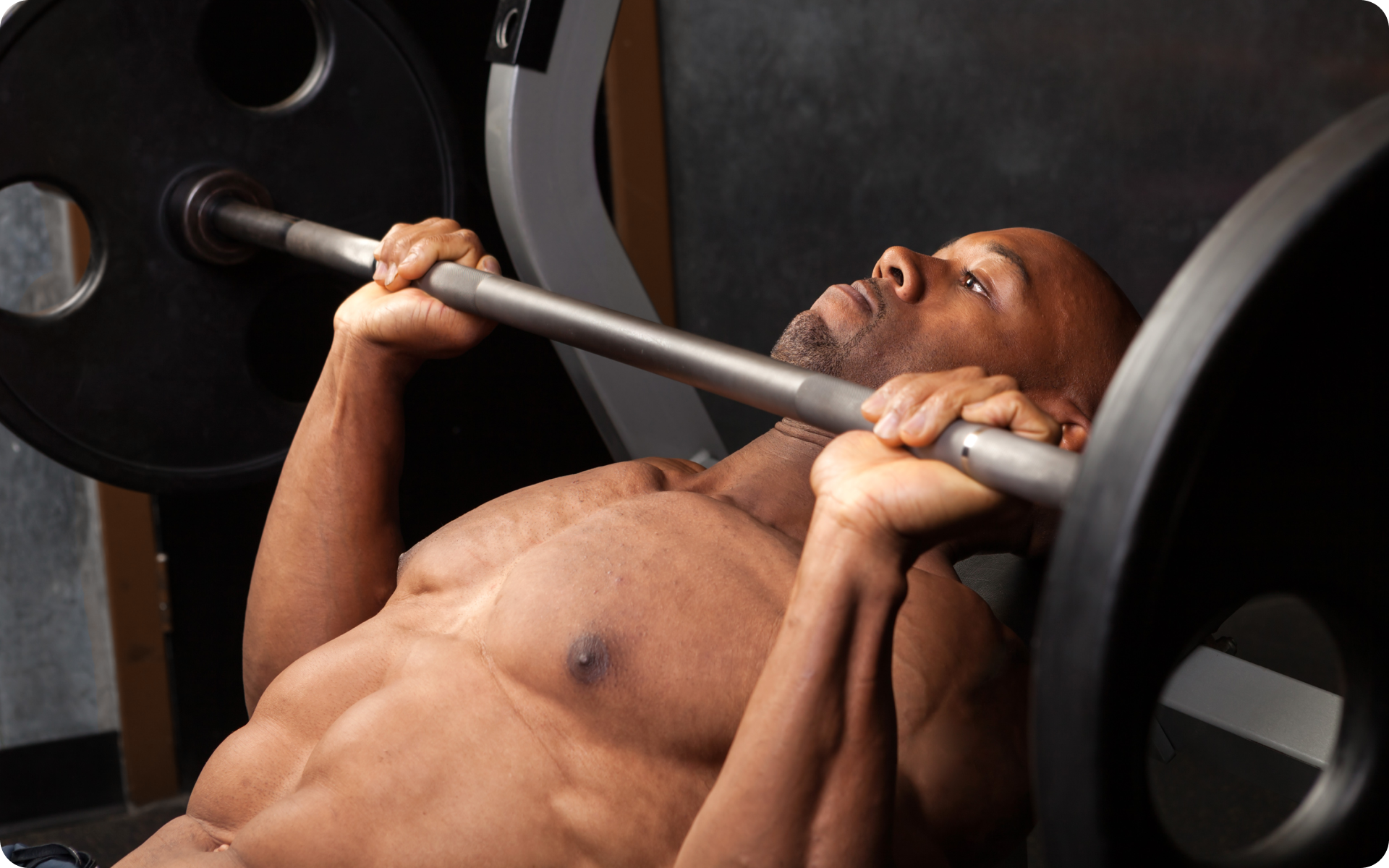Upper Chest Exercises Is A Fail-Proof Way To Pump Up Your Pecs
Having a ripped body is a goal of thousands of people who work out. Strong legs, tight abs, chiseled arms, and pumped chest – all those things combined are a textbook definition of an attractive fit figure. As some full-body trainings may not include all groups of muscles, you may end up being focused more on a certain part, therefore, ignoring some of the muscles. If your goal is a Greek god torso, your upper body workout must include not only general exercises which target your abs, arms, shoulders, and partially chest, but also those that involve more specific parts, such as for example upper chest exercises, which will balance out other muscles and make them all look equally developed. So, in this article you will find the best upper chest exercises to incorporate into your workout routine.
Get your personalized
meal plan!
Chest Muscles
To build your muscles more effectively, first you need to understand their anatomy. Like all other parts of your body, your chest consists of interconnected muscle groups, bones, and nerves (5, 2). The chest muscles include two main groups – pectoralis major – thick and wide, located under the breast; and pectoralis minor – thinner, triangular muscles, found underneath the pectoralis major (1). Both protect your vital inner organs and sustain proper movement. The pectoralis major is generally divided into parts widely known as upper, middle and lower chest. Today, you will get familiar with the upper chest exercises.
Warm-Up
Before getting down to any workout, first you need to warm up, to prevent possible injuries. A 10-minute light cardio will increase your blood flow and help you in the following weight exercises. Another vital part of any warmup is stretching. To stretch your pecs, stand in a doorway, raise your arms and grab the top of the doorway with both hands. Then tilt your torso forward, leaving the muscles to stretch. Another way is to grab sides of the doorway, bending the elbows and leaning forward, while straining the muscles (3).
Upper Chest Exercises
These upper chest exercises involve most of your chest muscles and are a great way to pump your pecs equally. You can modify them by increasing the number of reps, or adding some weight, however, remember that overworking your muscles can cause injuries, so discuss the adjustment of your training with a specialist.
Read More: How To Get Rid Of Chest Fat-The Most Effective Fat Burning Exercises
Push-Ups
Push-up is one of the most effective resistance exercises for your upper chest muscles. It involves both pectoralis major and minor, as well as shoulder muscle group, upper and middle back muscles, biceps, triceps, and others (7). There are a lot of push-up types, with different difficulty levels. The following push-up variants mainly focus on pecs, engaging some other groups of muscles as well:
-
Push-Ups For Beginners
This type of push-ups includes ones that are easier than the regular push up, but nonetheless, still highly effective. If you are new to exercising, you can begin with this type, and as you grow muscles, increase the number of reps and, eventually, upgrade to the regular and more difficult pushups.
-
Wall Push-Up
Stand in front of the wall, a bit further than arm-length away, with your feet shoulder-width apart. Tilt your torso forward, stretch your hands and put them on the wall, shoulder-width apart. Bend your elbows, leaning closer to the wall. When your elbows form a 90° angle, stop, hold the position for a couple of seconds and push away, straightening your arms.
-
Modified Push-Up
Get on all fours, with your hands shoulder-width apart, knees and toes touching the ground, legs together. Lean your torso forward, bend your elbows and lower the upper part of your body as close to the floor, as you can. Straighten your arms, pushing away from the ground.
-
Regular Push-Up
The regular pushup is the most popular variant of all. It engages your chest, shoulders, arms, and other muscles. To perform a standard push-up, get into a plank position, arms and back straight, hands and toes touching the ground. Bend your elbows, lowering the torso. Stop at a 90° angle and return into the plank position.
Want to build an attention-grabbing bubble butt, blast away fat that’s stored in all the wrong places, spring-clean your diet, turn back the clock on your skin, skyrocket your self-confidence and shatter your insecurities? Check out the BetterMe app and set this plan in motion!
-
Push-Ups With Higher Difficulty Level
These push-ups require a higher fitness level, as they are more difficult than the previous one, due to some modifications in their technique.
-
Wide/Narrow Push-Up
These push-ups are very similar to the regular push-up and are performed in the same way, with the only difference being the distance between hands. For the wide push-up you need to place your hands on the ground as wide as possible, and during the narrow push-up – as narrow as you can.
-
Clap Push-Up
Famous as one of the most difficult push-ups, clap push-up requires more strength than any of the previously mentioned exercises. After you lower your body, instead of slowly returning to the plank position, you push harder, jumping off the floor, and doing a clap, while your torso and hands are in the air, then landing back on your hands.
Chest Press
Chest presses are a great way to grow your pecs. You can perform them using the gym machine or at home with the dumbbells or resistance band (4).
-
Dumbbell Press
Take a dumbbell in each hand, and lie on your back, with your elbows bent on your shoulder level. Slowly push the dumbbells up, straightening your arms. Repeat the trajectory of the previous movement, slowly bending your elbows and lowering your hands to return to the initial position.
-
Resistance Band Press
Take the ends of the resistance band in your hands, so that it is behind your shoulders. Lie on your back, pressing the resistance band to the ground with your body. Repeat the same movements as with the dumbbell press but holding the ends of the bands.
Read More: Chest Dips Alternatives – Boost Your Upper Body Strength
Chest Fly
For this one you can also use either the machine or dumbbells. It has a somewhat similar technique to the chest press. You can increase the difficulty level of this upper chest exercise by doing an inclined chest fly. To perform a dumbbell chest fly, lie down on your back, with the dumbbell in each hand. Stretch your arms to the sides on the shoulder level. Lift your hands up, pushing the dumbbells directly above your chest. Leaving a small space between the dumbbells stop, and return to the initial position, repeating the trajectory of the previous movement (3).
Chest Dips
Another greatly efficient upper chest exercise, chest dip, requires two parallel bars. Beginners may find this exercise quite difficult at first. If you don’t feel like going to the gym, you can find a pair on the playground or use two chairs. When using the latter, be sure to fixate them properly to avoid any injury. To perform a chest dip on bars, stand between them and grab them with your hands. Raise your body at an approximately 40° angle, with your chest tilted forward and feet behind you. Without touching the ground, push your arms, straightening your elbows and lifting your body. Slowly bend your elbows, returning to the initial position.
Conclusion
A balanced workout is the basis of a sound body. To stay healthy and fit, your training must include exercises for all groups of muscles. Focusing on a certain part of your body and ignoring all the others may cause muscle imbalance (6). That is why, your torso workout must involve not only middle and lower, but also upper chest exercises. The above listed upper chest exercises will make a great addition to your training and make your pecs look more balanced. If you are a beginner or have certain health conditions which may be complicated by the intensive physical activity, please check with a specialist before starting a training.
DISCLAIMER:
This article is intended for general informational purposes only and does not address individual circumstances. It is not a substitute for professional advice or help and should not be relied on to make decisions of any kind. Any action you take upon the information presented in this article is strictly at your own risk and responsibility!
SOURCES:
- Anatomy, Shoulder and Upper Limb, Pectoral Muscles (2019, ncbi.nlm.nih.gov)
- Bones, muscles and joints (2019, healthdirect.gov.au)
- Chest Exercises to Help Tone and More (2004, webmd.com)
- Chest Press and Fly (2006, webmd.com)
- Muscle and bone, two interconnected tissues. (2015, ncbi.nlm.nih.gov)
- Muscle imbalances can wreck your workout (2013, washingtonpost.com)
- Which muscles do pushups work? (2018, medicalnewstoday.com)
